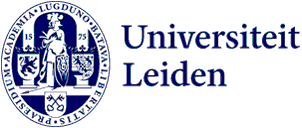
Social and Behavioural Sciences: from insight to impact
Working towards resilient communities, transparency in science and connecting with the employment market – these are the three key themes being addressed by the departments of Social and Behavioural Sciences at Dutch universities. On 11 February, they presented a joint sector plan to Marcelis Boereboom, director general for Higher Education at the Ministry of Education, Culture and Science, and Pieter Duisenberg, chairman of the Association of Universities in the Netherlands (VSNU).
If the major issues currently facing our society tell us anything at all, it is that none of these issues are purely medical, technical or biological. We are increasingly faced with a complex mix of factors, all of which have an influence on every conceivable issue, whether it is the climate crisis, persistent inequality, the impact of new technology or, last but by no means least, the coronavirus crisis. Social and behavioural factors play a crucial role in all these issues, and insight into the different factors is urgently needed to arrive at solutions and to manage developments that affect our society.
The Dutch universities have presented a joint sector plan for Social and Behavioural Sciences that sets out their strategies for working on solutions for urgent societal issues and strengthening the impact of science. The Sector Plan has been drawn up by the Social Sciences Disciplinary Body (DSW) comprising the deans of all the Faculties of Societal and Social and Behavioural Sciences at Dutch universities. Their aim is to build an intensive collaboration in the coming years relating to five major social challenges. ‘Social science research throughout the Netherlands is indisputably at a very high level and we now want to focus on how we can apply this high-quality research more effectively to address social issues and how we can make our research even more relevant,’ DSW chair and UvA professor Agneta Fischer explains.
The plan was presented to the Ministry of Education on Thursday 11 February and serves as the basis for the OCW Vision on Science and for additional investments in research to be funded from the national budget.
What is a sector plan?
In recent years, sector plans have been given a new role in government policies on higher education and science. A sector plan can serve as the basis for an extra financial impetus for scientific collaboration across the borders of disciplines, sectors or even domains to address urgent issues. The sector plan drawn up by the Social Sciences Disciplinary Body is part of the broader domain plan of the Social Sciences and Humanities Council. As well as social sciences, partners in the SSH Council include the humanities, law and economics and business administration. The domain policy presented in 2019 gives a broad overview of the importance of the SSH domain for the growing Dutch service economy, a sector that is served by highly educated specialists, including communication experts, providers of legal advice, education specialists, youth support workers, econometrics specialists and scenario writers. Each sector builds further on this image by developing its own detailed sector plan. These sector plans form the basis for possible additional government funding.
Investing in major societal themes
The ‘From Insight to Impact’ sector plan presents five major societal issues where collaboration in interdisciplinary research can contribute to solutions in the form of policy advice, interventions, etc.:
- Resilience in young people (prevention and treatment of increasing mental issues among young people)
- Psychological conditions (combatting the most common psychological conditions such as anxiety and depression that make the lives of an increasing number of people unbearable)
- The human factor in new technologies (what is the social impact of more robots in the care or service sectors, or more algorithms in news and other types of information provision?)
- Societal behavioural change (how can we structure government processes better so that major societal changes like sustainability or digitalisation can be managed more effectively?)
- Social inequality and diversity (research on solutions for combatting increasing inequality and polarisation, and promoting inclusion and diversity).
Open Science and alignment with the employment market
Besides the interdisciplinary research programmes, the sector plan also presents two strategic choices to which the faculties have jointly committed.
- Strengthening open science and making research more open, accessible and transparent, for scientists, professionals, the public and the media/journalists.
- Ensuring that the programmes connect better with the employment market. Almost 80% of Social and Behavioural Science graduates have a salaried job, but with extra investments the interaction between the academic world and the world of policy-making/practice can be further strengthened and new opportunities will emerge for incorporating scientific insights into the policy-making world.
Investing in education sciences in a broad sense
Finally, the plan introduces ‘education sciences’ as a separate column that needs broad investment. The sector intends to focus on proven effectiveness as the basis for educational changes that meet the needs of modern society. Such issues will be addressed as: how to organise schools more professionally and reconfigure the teaching profession, and how to handle individual differences between pupils and the diversity of target groups.
